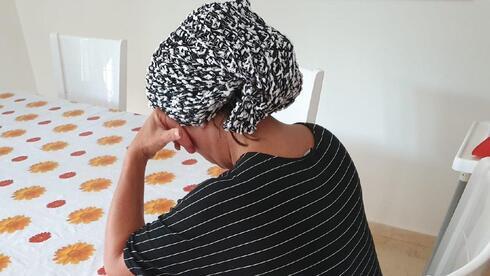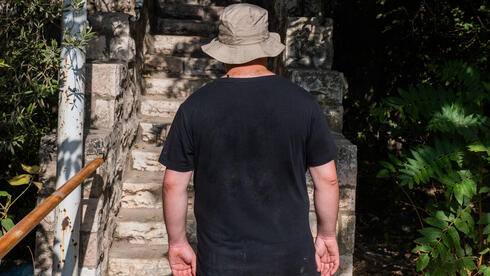Getting your Trinity Audio player ready...
Mental health experts are warning that the emotional and psychological impact of the coronavirus pandemic is no less severe than the havoc wreaked on Israel's health system and the economy.
"My home is like a pressure cooker," says Silvie, a 40-year-old mother of three from Ashdod who has been on unpaid leave since the first lockdown was imposed in the spring.
2 View gallery


Silvie, a mother of three on unpaid leave, says she is living in a pressure cooker
(Photo: Courtesy)
Her husband is self-employed and also virtually without work or income.
"You are constantly in survival mode - with more money being spent on the one hand because we are all at home and our need to cut down on expenses on the other," she says.
The children were also extremely stressed, fearing they will catch the disease, Silvie says.
"They ask me what would happen if I died or anyone in the family contracted COVID-19? But we as parents must ease their concerns and carry on even though we are also buckling under the pressure," she says.
Psychologist Elite Mardo of Haifa University reports a 300% increase in requests for psychological treatment.
"Our data shows that 25% of Israelis over the age of 21 – approximately 1.2 million people - reported a deterioration in their mental and emotional state after the first lockdown, and 26% say the emotional state of their children has taken a turn for the worse," she says.
"There is a 40% increase in anxiety and depression during the current lockdown," she adds. "These are catastrophic numbers."
"This lock down is messing with my daily routine," says Yaron, 30, who suffers from Post-Traumatic Stress Syndrome.
2 View gallery


Yaron who suffers from PTSD is battling loneliness in lockdown
(Photo: Shalev Shalom)
"I live on my own and the lockdown for me is like being under house arrest. I have nothing to do, nowhere to go. I am used to getting up, going to work, going to the gym and working out my anger and aggression. That is where I learn to cope with society," he says.
"I can't do any of that now and I feel like I'm not even human. I hardly ever cry but during this lockdown I just break down," he says.
His fear is not that people close to him will die from the virus. "My fear is the loneliness."
Sixteen-year-old Yanai from Haifa is also under extreme stress.
"We are in serious financial difficulties at home. My mother was fired from her job and we have many expenses," he says.
"One day I went to school wearing a black T-shirt and was told off by the principal for not wearing the school uniform - but buying a new T-shirt would have come at the expense of food," he says.
"This increases anxiety for all of us, especially those with mental health issues during a lockdown that has cut our patients off from their therapeutic teams."
Yanai approached Elem, an NGO set up to deal with youth distress, who stepped in where the government failed to and purchased a school uniform and equipment.
"But now I cannot even go there for help," he says.
"The lockdown hits two important principles for maintaining mental health," says clinical psychologist Yoni Bogot, CEO of the Summit Institute, a Jerusalem facility treating some 600 people with mental health issues.
"The hardest things for people to cope with is sense of helplessness and a fear of the unknown," he says.
"This increases anxiety for all of us, especially those with mental health issues during a lockdown that has cut our patients off from their therapeutic teams."

